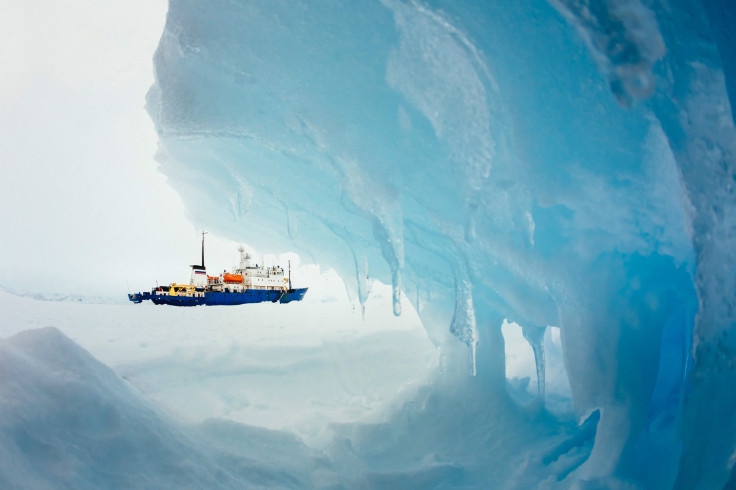Newly Signed Arctic Deal Clamps Ban On North Pole Fishing: US, Russia Part Of Pact

In a significant step towards climate preservation in the Arctic sea, five countries have signed a deal that seeks to prevent commercial fishing in the Arctic sea near North Pole. Signed in Norway’s capital, Oslo, the deal is supported by Norway, Canada and Denmark.
The new ban on fishing will be binding on the international waters beyond the 200-mile exclusive economic zones of the five nations in the area, including North Pole. The United States has already banned commercial fishing in its exclusive economic zone off Alaska’s North Slope way back in 2009. Norway also enforced a similar prohibition against its trawlers from operating in international waters.
Scientists assess that Central Arctic is expected to have more fish stocks as ice starts melting during the summer. Though bulk of the ocean remains icebound, the warming of the Arctic has left many parts of the ocean open for exploration by ships.
Sea Warming
The ban is an interim one and will be enforced to curb commercial fishing in the international waters until more scientific research is done to understand how warming of seas and melting of ice are affecting fish stocks. However, the agreement is significant as it comes in the midst of reports released by the National Oceanic and Atmospheric Administration and the American Meteorological Society that temperatures on the ocean surface are rising and have reached the highest levels in 135 years of record keeping.
The report said that rising temperature in oceans, especially in the Northern Pacific, have been drawing fish stocks farther north. The shrinking levels of ice have also opened up the prospect of industrial-scale fishing in the once-inaccessible Arctic.
“Climate change is affecting migration patterns of fish stocks," said Borge Brende, Norway's foreign minister. He said Norway and other coastal states in the Arctic, such as Canada, Denmark, Russia and the United States, have a “particular responsibility” to regulate fishing that may occur there.
Interim Pact
In the interim pact, the member nations have pledged to begin “a broader process” on regulating commercial fishing in the Arctic Ocean. That is why the incremental Oslo pact has been hailed by environmental groups despite lamenting its short term nature. “With this agreement, the Arctic states have recognised that the Arctic Ocean is an extraordinary environment which requires better scientific understanding,” said Sophie Allain, an Arctic specialist at Greenpeace. But she regretted the missed chance in delivering a “permanent protection this area desperately needs.”
The Oslo agreement does not clamps any curb on fishing in territorial waters, which is an important source of livelihood for the indigenous populations across the Arctic and Russia, whose fishing fleets operate in the ice-free Barents Sea. According to fishermen near Murmansk, cod stocks are moving farther from the shore in recent years.
With the rising wealth of Arctic in terms of new resources, more countries are staking claims for a share in it. These claims are now being examined by a 21-member UN arbitration panel with special focus on the Lomonosov Ridge--the 1,800 km-long underwater mountain range that splits the Arctic into two.
(For feedback/comments, contact the writer at k.kumar@ibtimes.com.au)





















